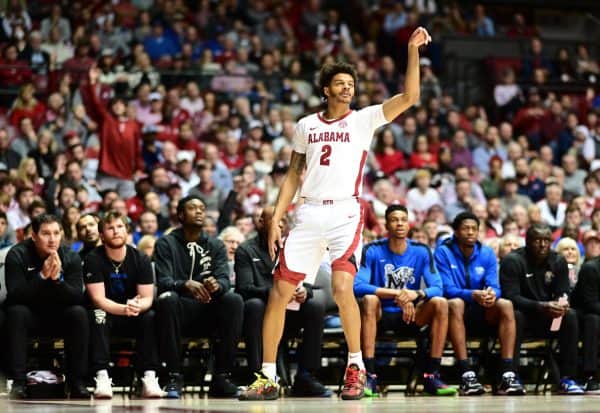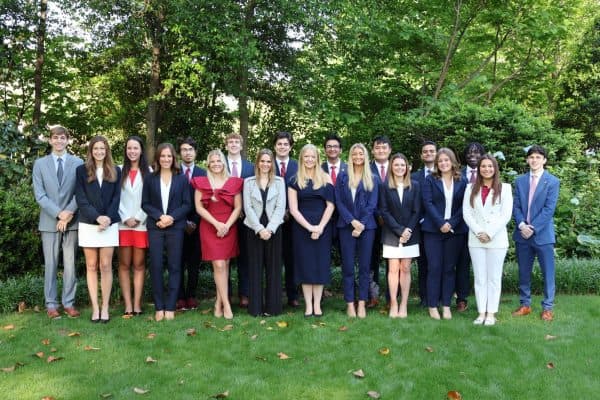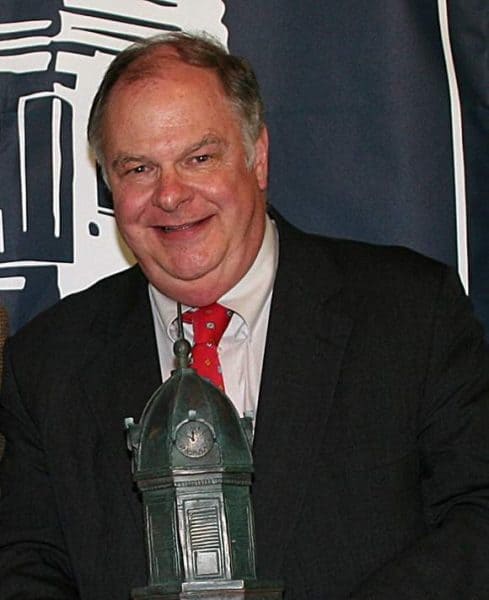UA alumni react to OSM controversy
July 20, 2019
UPDATE, July 22, 2019 at 12:24 p.m.
Adam Sterritt, Assistant Vice President of the Division of Student Life, declined to comment when asked if the position of OSM director had been filled, when an announcement would be made on the position or if any ethical concerns about Bob Davis were brought to his attention during any point in the interviewing process.
Sterritt makes the final hiring decision for the OSM Director position.
The story continues for Bob Davis, and new characters have entered the scene.
Former UA students are expressing their concern about a candidate for the Office of Student Media director position after allegations surfaced that he censored an unfolding story about sexual assault on his former newspaper’s staff. And, in an effort of clarification, an employee from The Anniston Star has also come forward to further iron out the narrative surrounding allegations of Davis’ involvement in covering up a story about sexual assault in 2017.
[Read: Ethical concerns surround candidate for Student Media director position]
Davis, former editor and publisher at The Anniston Star, is one of three candidates who are being considered for the position at The University of Alabama. The OSM Director oversees six student media outlets: The Crimson White, Alice Magazine, 90.7 The Capstone, Marr’s Field Journal, The Black Warrior Review and Bama Life newsletter.
CONTINUING THE NARRATIVE AT THE STAR
The concerns surrounding Davis’ potential hiring were brought to The Crimson White’s attention on Wednesday, July 17 by former Anniston Star reporter Eddie Burkhalter, who worked with Davis at the newspaper (often referred to as “The Star”) for nine years.
When Davis was reached for comment about Burkhalter’s allegations, he responded by saying that “Mr. Burkalter is a disgruntled employee who tried to make the story about himself, not about real suffering of people, which is the story that The Anniston Star pursued.”
Ben Cunningham, the managing editor of The Star, approached The Crimson White after Thursday’s story on the allegations against Davis was published. Cunningham, who still works as the managing editor at The Star, said in 2017 that Burkhalter approached him on a Friday to ask about pursuing the story.
After Davis told him to order Burkhalter to halt work on the story, Cunningham said he told Burkhalter to wait until the following Friday to pursue the story, not to drop it completely. When Burkhalter refused to wait that long, Cunningham said he negotiated that Burkhalter will wait until the following Wednesday.
Cunningham said Davis’ instruction to halt the story was surprising and that he asked Burkhalter to temporarily stop working on the story to give him time to persuade Davis to allow the story to continue.
“After I asked Bob and was surprised with Bob’s instruction to stop, I told Eddie this as soon as I could,” Cunningham said. “When he had first brought me this tip that morning, even then he was saying he was prepared to leave the paper, if he had to, to report the story. I told him I didn’t think that would be necessary and that I had to come back to him with Bob’s instruction, which did surprise and disappoint me.”
Cunningham said Burkhalter “tacitly” agreed to wait until Wednesday but that on Tuesday, Burkhalter admitted he continued to work on the story, going directly against Cunningham’s instruction to wait until he could convince Davis to allow Burkhalter to continue pursuing the story.
Cunningham said that had Burkhalter waited until Wednesday as asked, he would have been able to pursue the story without quitting the Star.
“On Wednesday, after Eddie had quit, Bob agreed at my urging to let us pursue the story and (Tim) Lockette did it instead,” Cunningham said. “Eddie could have done that story at The Anniston Star and chose not to. He chose not to give me the time I asked for.”
Burkhalter said that he did agree to wait until Wednesday to look into the story but that he continued to find more information related to the story. After finding court documents directly related to the allegations, Burkhalter returned to the newsroom on Tuesday to present his findings to Cunningham, in the hopes that new information on the allegations would get Cunningham to put more pressure on Davis to allow the story to continue.
“By that Tuesday morning, I let Ben know what I’d learned because I felt like I’d learned enough to say, ‘Ben, this is how bad it is,’” Burkhalter said. “Instead of saying what I’d hoped he would say, like, ‘Well, I really need to pressure Bob now that we know more and there’s a court case,’ instead of doing that, Ben just got angry at me and that was the end of it. I was hoping that what I had learned would change Ben’s mind and put more pressure on Bob to do the right thing but it didn’t work out that way.”
After Burkhalter was later reprimanded by Cunningham and Davis for not waiting until Wednesday for permission to pursue the story, he decided to leave the Star to pursue the story elsewhere.
“When I eventually got back in the office with Bob and Ben both, Ben kept saying, ‘You promised me Wednesday,’ and I said, ‘Ben, it’s tomorrow. What difference does it make whether it’s today or tomorrow? If you’re not ready to tell me that you’re going to let us look into the story today, you’re not going to be ready tomorrow,’” Burkhalter said.
ALUMNI SPEAK OUT
Monde Donaldson, Vice President of the Better Business Bureau Educational Foundation, worked as the editor-in-chief of The Crimson White from 1974 to 1975. In her professional career, Donaldson has worked to keep an ongoing relationship with the University through her support of The Crimson White, donating to the University and being a part of the major student life alumni awards in recent years. After hearing of the allegations against Davis, she contacted a trustee at the University to express her disapproval.
“The reputation of The Crimson White over the last 10 years has established itself as such a national leader on the student journalism front, and actually on the state front, with the stories that [The Crimson White] have brought forward and I would really, really hate it [for the CW] to take a step back because [the CW] had the wrong leader,” Donaldson said.
Much of Donaldson’s distaste for Davis’ consideration comes from a place of trust, as she served as a journalist for the beginning of her post-collegiate career at The Star and the Mobile Press-Register. Given claims that Davis ordered Burkhalter to halt reporting on the story about former Consolidated Publishing chairman H. Brandt Ayers’ history of sexual assault at The Star, Donaldson worries how Davis might handle potentially controversial stories if he were to be the Director of Student Media.
“If a journalist is doing their job, they’re not there to win a popularity contest,” Donaldson said. “They’re there to seek the truth. And I really question, with Mr. Davis’ background, if he is really willing to back up your staff and seek the truth in every story.”
Laura Testino was a culture reporter for The Crimson White from 2013 to 2016. Shortly after Testino joined the staff as a freshman, the paper published “The Final Barrier,” an article written by Abbey Crain and Matt Ford on segregation within the University’s Greek system. Testino said seeing the work that went into that piece inspired her to rethink the way she viewed journalism.
“This showed me what student media could do and that piece would not have happened without the support from the rest of the OSM,” Testino said. “They (Crain and Ford) had the support of the newsroom and coming into that as a new student and watching that they had that support, it made me feel like I would be able to tell a story like that if I wanted to one day.”
After graduating from the University, Testino spent 10 months writing about changes in law and policy that occurred after Buzzfeed News told the story of Megan Rondini, a former UA student and alleged survivor of sexual assault whose suicide, a lawmaker contended, was a result of the systems that failed her.
Testino said that in the era of the #MeToo movement, the public is not only seeing more survivors who have been silenced from telling their stories, but they’re also becoming more aware of the institutional practices that keep them silent – including those in the newsroom.
“It often comes down to an editor for whatever reason saying, ‘We can’t run this story’ and I think that it’s important to realize, any time you’re talking about sexual assault, the story is obviously very important and for that reason, you want to be able to trust your editor with that,” Testino said. “You want it to be a very collaborative effort where somebody has your back and you’re checking each other as you’re going through the reporting of a story.”
Will Tucker, an investigative reporter for the Southern Poverty Law Center, served as editor-in-chief of The Crimson White from 2012 to 2013.
An event that shaped Tucker’s experience at the paper was the April 27, 2011 EF4 tornado that tore through Tuscaloosa, leaving 51 Tuscaloosa residents dead. Tucker said the staff did reporting they were proud of and that they couldn’t have done it without the directors of student media.
“During those few weeks after the tornado, we were, at times, pretty critical of the University administration’s response and we didn’t really hold back,” Tucker said. “There was no topic that we wouldn’t investigate and write about, either in reporting pieces or in opinion pieces as well, and the directors of student media just supported us wholeheartedly throughout that.”
Tucker believes that the hiring committee should take what has been publicly reported about Davis into consideration when deciding if he is the appropriate candidate for the position.
“They (the hiring committee) should especially consider things that are relevant to reporters being able to do their jobs,” Tucker said.
Ayers and Davis started, with Ayers’ funding, an ongoing partnership between The Anniston Star and the University of Alabama’s community journalism masters program in 2004, just after Davis joined the staff as an editorial page editor in 2003. Davis also served as president of the Ayers Family Institute for Community Journalism from 2010 to 2018. And, Ayers has spoken at University commencement ceremonies and has had scholarships named after him.
In 2018, when the news officially broke of allegations against Ayers’ abusive behavior, Donaldson said she and other UA alumni were quick to demand his name be taken off all honoraries – and the University responded. Given the history of Davis’ and Ayers’ connection to the University, and of Ayers’ abuse at The Star, Donaldson said she expects more clarity about the hiring process for the new director of student media.
“The University needs to be very transparent in this whole situation,” Donaldson said. “I keep asking myself, ‘Why would the University want to hire someone who did not want to report on sexual misconduct in the workplace? Would I want my daughter to be involved with student media at UA if the director chooses to look the other way?’”
LOOKING AHEAD
The Crimson White filed several Freedom of Information Act (FOIA) requests with the University on July 19, one of which requesting any emails between UA employees and Adam Sterritt, the Assistant Vice President of the Division of Student Life. Sterritt makes the final hiring decision for the OSM Director position. Another FOIA request was filed to seek the acceptance and rejection letters for all the candidates from the University’s HR department.
Multiple attempts have been made to contact Sterritt, but none have been successful. The Crimson White also made two calls to Bob Davis Saturday morning and got no response.
–
Editor’s Note: The Crimson White’s Editor-in-Chief Savannah Bullard, Managing Editor Ben Stansell, News Editor Rebecca Griesbach and Assistant News Editor Jessa Reid Bolling contributed to the reporting and writing of this story.










